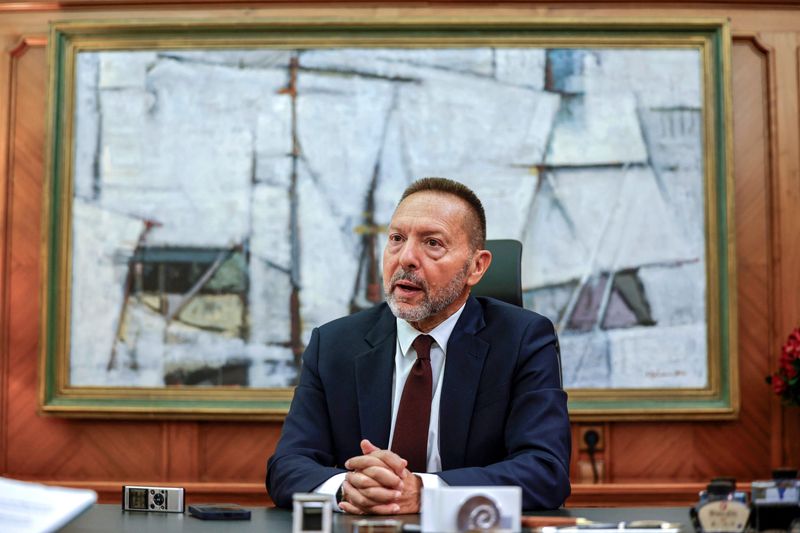By Lefteris Papadimas and Francesco Canepa
ATHENS (Reuters) - The European Central Bank should not stop its bond purchases early because they may still need to calm jittery markets but it is down to governments, including Italy's, to keep bondholders on side, ECB policymaker Yannis Stournaras told Reuters.
In the interview, Greece's central bank governor also warned about the risk of stagflation from a prolonged war in the Middle East and spoke against increasing the amount of reserves that banks must hold.
He countered calls by some of his colleagues for an early end to the ECB's last surviving bond-buying scheme, saying the central bank may need that firepower in a geopolitical environment fraught with risks.
"I see no value in bringing it (the end) forward especially now under the new uncertainty we have because of the events in Israel and Palestine," he said. "So we need to keep our flexibility and act if necessary."
The ECB all but stopped buying bonds last year after a sudden surge in inflation forced it to unwind a decade of stimulus policies.
But it has retained the Pandemic Emergency Purchase Programme as a "first line of defence" against sudden spikes in borrowing costs for debt-laden countries, such as Italy, saying it would replace bonds that mature until the end of next year.
Investors have been demanding a higher premium to hold Italian government bonds since the government raised its budget deficit targets last month, setting it up for a possible clash with the European Commission and fuelling speculation about ECB intervention.
Stournaras - whose country has just regained the coveted investment-grade credit rating after near misses with default, three bailouts and much belt-tightening in the space of a decade - played down market concerns about Italy's public finances as long as Rome keeps on the straight and narrow.
"The situation in Italy does not raise any particular worries at the moment, but provided that the Italian government will consult with the European Commission and reassure investors that it will continue to abide by the agreement that (it) has with the European Commission on the budget deficit," he said.
On the broader impact of the conflict, he said wars tend to be "stagflationary" - a toxic mix of high inflation and a stagnant economy that sometimes results from more expensive imports of raw materials - but cautioned it was too early to tell.
Finally, he noted borrowing costs had already risen since the ECB's last policy meeting as a result of higher bond yields and questioned if even more tightening was needed via an increase in banks' minimum reserve requirements.

This move would withdraw cash from the financial system and, given that minimum reserves are not remunerated, it would also reduce the amount of interest that the 20 central banks of the euro zone pay to commercial banks in their country.
"For the moment I see no reason why we should tighten monetary policy now because increasing the minimum requirements will imply monetary policy tightening," Stournaras said.